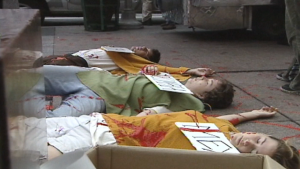With great political significance also comes great opposition.
While Philadelphia will be on the world stage as it prepares to host the 2016 Democratic National Convention, it will also have to prepare for the people who will take advantage of that moment. Thousands of protestors, speaking out against the establishment or any number of issues, are expected to flood into the city as the convention gets underway,
Philadelphia has already taken steps to ensure that protestors are able to exercise free speech. Mayor Jim Kenney has approved multiple permits to allow open protest in Philadelphia. He has also decriminalized nuisance crimes, such as disorderly conduct. This means that for small offenses, protestors could merely receive citations instead of being arrested. Below is the Mayor’s press release detailing those new laws during the convention:
However, despite these accommodations, the American Civil Liberties Union of Pennsylvania is working with the city to make sure protestors’ voices are being heard. Moly Tack-Hooper is a Staff Attorney at the ACLU and is working closely with the city to create the safest and most effective environment for protestors.
“Dissent is important, it’s American,” Tack-Hooper insisted. “We’ve been advocating for the city to do everything it can to enable as many protestors voices as possible to be heard.”
She is also working hard to ensure that protestors know their rights- when and where they’re allowed to be, what types of civil disobedience are allowed, and proper actions when dealing with law enforcement. She is also working on logistical aspects in preparations, making sure protestors have proper accommodations, but more importantly making sure they can rally in an effective location. Right now that location is Franklin D. Roosevelt Park, across the street from the Wells Fargo Center and site of the convention. While geographically close, the park is separated from the convention by 11 lanes of traffic, trees and fencing.
“When protestors have a message for the delegates, they want to make sure the delegates can hear and see their message.”
She says this is an integral part to any society.
“The system that our founding fathers set up was this marketplace of ideas, the idea is that if you let everyone put their ideas forward, the good ideas will rise to the top people will be able to criticize the bad ones, and that will allow us to make informed decisions as a society.”
These preparations come after Philadelphia hosted the Republican National Convention in 2000. Thousands of protestors interrupted traffic and city operations during the four days. The city made dozens of arrests and came under scrutiny for allegedly allowing state police to infiltrate protest groups.
Former Pennsylvania Governor Ed Rendell said the city is prepared for this week’s protests, and that the city handled it well in 2000.
“By in large, it was handled very well by the Philadelphia police and the state police, and protestors didn’t get out of control.”
Even so, the city is not taking any chances. The city recently invested in a $5 million insurance policy to cover the DNC protests. This insurance covers potential lawsuits for “errors and omissions while performing their professional duties” by police officers, according to City Spokesman Mike Dunn.
While tensions build, Tack-Hooper says the advances in technology will also help in holding law enforcement accountable.
“Everyone who has a smart phone in their pocket has the ability to record police interactions, document them, and publicize those interactions in a way that you didn’t necessarily 20 years ago.”
Protests are expected to begin on the first day of the convention and continue throughout the week.








Be the first to comment